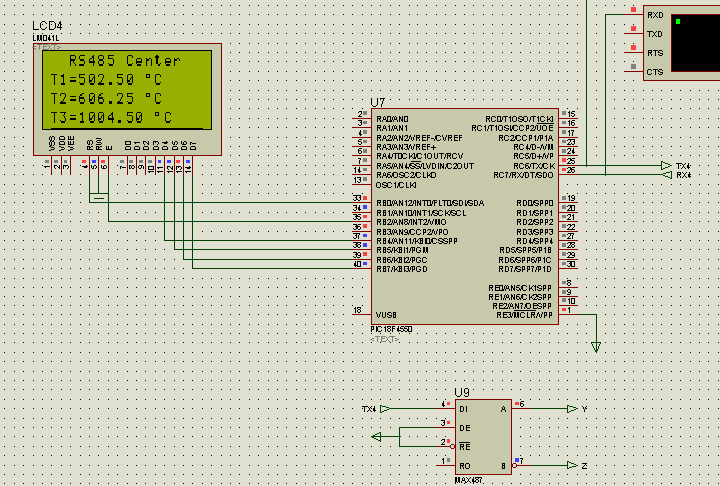
Three C Compilers for the PIC NOTE: This page is a little out of date now - I plan to revise it when I get a chance Writing your microcontroller firmware in a high level language is so much easier than writing in assembler. Something that might take a week to write and debug in the C language would take months if you were forced to use assembler — and, the assembler code would be buggy and hard to maintain. Unfortunately, due to the compiler unfriendly architecture of the Microchip PIC series, there are few free or low cost compilers available for the low end chips. This is where the users of the Atmel AVR series have a clear advantage, they have access to the for that chip. This article looks at three C Compilers for the PIC series of microcontrollers from the point of view of the cash strapped hobbyist and makes some recommendations as to the best way to go. Why Use a C Compiler? Firstly, a few words are necessary to explain why a C Compiler is such a good thing.

C sample code for PIC micros and Hi-Tech C. Example Hi-Tech C code. The downloads below are freely available and downloadable from Microchip and Hi-Tech. Click on HI-TECH C Compiler. Users interested in Hi-tech c compiler for pic18 mcus generally download. HI-TECH C Compiler for PIC10/12/16 MCUs - PRO fully implements the optimizations of Omniscient Code Generation™ - a whole-program compilation technology - to provide denser code and better performance on PIC MCUs. This ANSI C compiler integrates into Microchips MPLAB(R) IDE and is compatible with Microchip debuggers and emulators.
If you are familiar with C you can skip to the next heading. Assembler gives you tight control of every CPU cycle and very efficient use of both program memory and RAM. When you write in assembler you are intimate with every detail of your code and this intimacy allows you to cut corners and craft some especially neat solutions. This is essential when you are short of memory and must get the best speed from limited hardware. This intimacy is also the downfall of assembler when a program gets large. Anything that is much greater than 2K or 3K bytes in size starts to become a nightmare.
ZTE CE1588 Modem unlock can any one help unlock this type of USB MODERM? Did you try to detect this modem with DC-Unlocker? Post Cancel #3. Zte ce1588 modem unlocker. How to unlock ZTE CE1588. All we need is the IMEI number of your ZTE CE1588 phone and the network Provider it's currently locked to (we mean the Original Carrier who sold the phone: they have programmed the simlock restriction). ZTE dongle unlock code generator/calculator. Unlock you ZTE modem/dongle using IMEI number for free! Zte ce1588 usb modem unlocker software. Pls i hv a huawei unlocker software i want to unlock a glo modem, i have type in the imei of the modem in the software.
There are so many variables to keep track of, so many side effects from calling various subroutines, and so much complexity that in many cases it is impossible to continue using assembler. Even an application for the humble 16F88 chip with its 4K of memory would benefit from being developed in C, while complex applications written for the 32 bit chips are impossible to develop for in anything other than C.
What about Basic and Pascal? These languages are good for high level tasks like business software, but they hold you too far from the intimate details referred to above. C also lets you get down and dirty and easily twiddle registers and bits — It is designed for efficiently dealing with hardware. Finally, all C Compilers give you a get out of jail free card. They allow you to embed assembler directly into the C code. So, when you do feel the need to really optimise the hell out of a routine you can indulge yourself without causing too much of a headache.